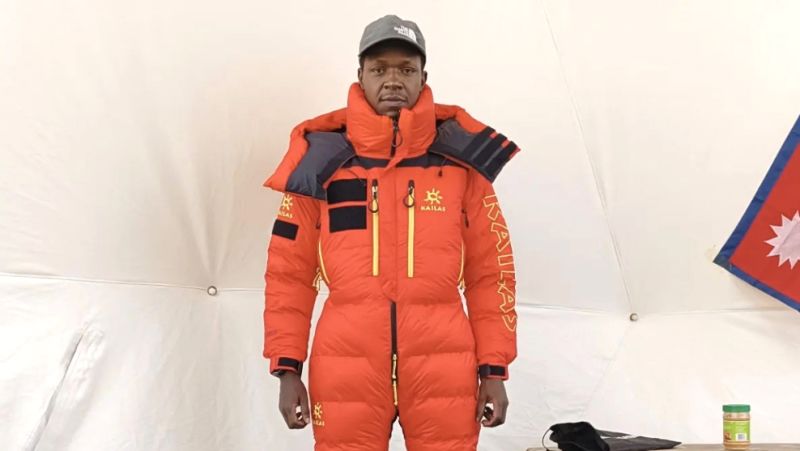An experienced Kenyan mountaineer died Wednesday and rescuers are still searching for the Nepali sherpa who was with him, after the team attempted to summit Mount Everest without supplemental oxygen, according to the Nepali government and his employer.
Kirui’s body was discovered on Wednesday night local time in Nepal, at about 28,970 feet (8,830 meters) above sea level.
His employer KCB Bank called him “a passionate athlete and mountaineer,” saying he was “the second Kenyan to ever summit Mt Everest” in an post on X.
Kirui documented his brave attempt to climb to the peak of Everest without supplemental oxygen in his last post on Instagram. “A no-oxygen attempt comes with its special preparations and risks, physically my body is ready,” he wrote, also laying out the precautions he was taking.
He listed drugs he was bringing along for any potential illnesses or frostbite and said his guide would also carry an emergency bottle of oxygen.
“And so after heavy investment physically, mentally, timewise (this expedition is taking more than a month from a regular 8 to 5 banker), financially (the amount of zeros needed to make this happen means I declare bankruptcy immediately I land back in Kenya)… it’s now the moment of truth,” he wrote.
Congratulatory comments and good luck wishes on the Instagram post were soon replaced by condolence messages as word spread that his body had been found.
Kirui was a lover of the outdoors, who ran ultramarathons and climbed some of the world’s most daunting mountains, according to colleagues.
“His indomitable will and unwavering passion for mountaineering led him to conquer the world’s most awe-inspiring landscapes,” KCB Group CEO Paul Russo wrote of him. “His recent triumphs on Mt Manaslu and Mt Everest are a testament to his adventurous spirit and determination.”
Mount Everest, the highest peak in the Himalayan mountain range, is also the tallest mountain on Earth, rising 29,035 feet (8,850 meters) above sea level on the border between Nepal and Tibet — an autonomous region in China. More than 300 people are known to have died on the mountain.
Spring is the prime time to climb Everest, although some mountaineers might climb in the less favorable autumn season. Most climbers try to ascend the peak in May. There’s a brief window of time – usually after mid-May – when temperatures are warmer, and the high-altitude winds known as the jet stream have moved away from the mountains.
Correction: This story has been updated to amend the name of the Nepali official.






